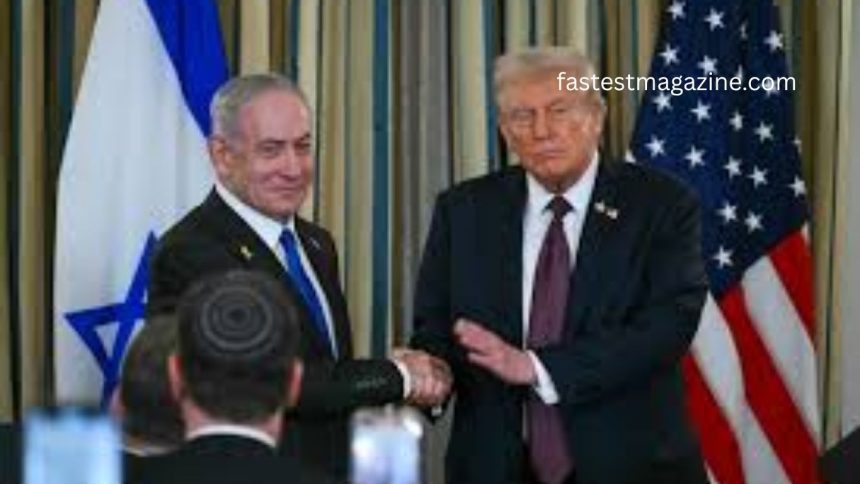Global Political Landscape 2025: Elections, Reforms, and Shifting Alliances
The political landscape in 2025 is marked by elections, reforms, and shifting global alliances that are reshaping governance and diplomacy. Nations worldwide are navigating domestic pressures, economic uncertainty, and international challenges, creating a dynamic political environment. From democratic transitions to policy innovations and geopolitical tensions, governments are facing complex decisions that will define the trajectory of the decade.
United States: Policy Debates and Political Participation
In the United States, 2025 is a year of significant political activity. Policy debates on healthcare, climate change, and economic reform dominate public discourse. Congressional negotiations and executive actions reflect the ongoing struggle to balance domestic priorities with global responsibilities. Social movements, voter engagement campaigns, and technological innovations in electoral systems are influencing political participation, ensuring that citizens have a greater voice in shaping policy outcomes.
Europe: Elections, Reforms, and Regional Unity
Europe faces a series of elections and policy reforms that influence both the region and global governance. Nations such as Germany, France, and Italy are addressing economic recovery, energy security, and immigration policies while maintaining commitments to international agreements. The European Union continues to navigate complex trade, security, and environmental policies, emphasizing unity while managing the diverse interests of member states. Public sentiment and voter participation are critical factors in shaping EU policy agendas and domestic political landscapes.
Asia-Pacific: Transformation and Regional Stability
Asia-Pacific is witnessing rapid political transformation. Democratic institutions in some nations are consolidating, while others grapple with authoritarian tendencies and social unrest. Geopolitical rivalries, particularly involving China, India, and Southeast Asian nations, influence trade agreements, security pacts, and regional stability. Diplomacy, strategic alliances, and conflict resolution efforts are central to maintaining peace and promoting economic growth in a rapidly changing region.
Middle East: Reform and Diplomacy in Transition
Middle Eastern politics are marked by reform, conflict resolution, and economic diversification. Governments are implementing policies to reduce dependency on oil revenues, foster entrepreneurship, and enhance social services. Diplomatic efforts, regional partnerships, and international agreements continue to shape the political environment, while ongoing humanitarian challenges require coordinated responses from both regional and global actors. Energy policies, foreign investment, and security concerns remain central to political strategies.
Latin America: Social Movements and Political Reform
Latin America’s political scene is shaped by social movements, policy reforms, and electoral transitions. Governments are addressing inequality, corruption, and environmental sustainability while balancing domestic and international pressures. Civic engagement, youth participation, and social media influence are transforming political discourse, providing new channels for accountability and advocacy. Economic stability and equitable governance remain critical for long-term political consolidation.
Africa: Governance, Stability, and Growth Initiatives
Africa is experiencing a wave of reforms and governance initiatives aimed at promoting stability, economic growth, and democratic consolidation. Regional organizations, such as the African Union, facilitate collaboration on security, trade, and infrastructure development. Nations are implementing policies to strengthen institutions, enhance transparency, and improve public service delivery, while addressing social and environmental challenges that impact political stability.
Technology and Digital Governance: The New Political Frontier
Technology and digital governance are increasingly central to politics in 2025. Governments are deploying AI-driven systems for policy analysis, electoral management, and citizen engagement. Social media platforms continue to shape political narratives, enabling rapid dissemination of information while also presenting challenges related to misinformation, polarization, and cyber threats. Cybersecurity remains a key priority, with nations developing frameworks to protect critical infrastructure and maintain public trust.
International Diplomacy: Redefining Global Relations
International relations and diplomacy are in flux. Alliances and partnerships are evolving in response to economic competition, security concerns, and environmental pressures. Multilateral institutions, trade agreements, and strategic collaborations play a central role in managing global challenges, from climate change to regional conflicts. Effective diplomacy requires balancing national interests with collective global responsibilities, a challenge that has grown increasingly complex in 2025.
Public Opinion and Activism: Citizens as Change-Makers
Public opinion and activism are reshaping governance. Citizens are increasingly engaged in political discourse, leveraging social media, protests, and advocacy campaigns to influence policy. Issues such as climate action, economic equity, digital rights, and social justice are driving civic participation and holding governments accountable. Political parties and leaders are adapting to this dynamic landscape by emphasizing transparency, responsiveness, and inclusivity.
Outlook: Governance and Global Cooperation Ahead
Looking ahead, 2025 will likely be defined by adaptive governance, international collaboration, and technological integration. Policymakers must navigate domestic expectations, global pressures, and emerging threats while promoting stability and innovation. Nations that can balance these complex demands, respond to societal needs, and leverage technology effectively are poised to shape the political order of the coming decade.
FAQs
What are the main political challenges in 2025?
Elections, economic uncertainty, climate policy, social inequality, and global geopolitical tensions are major challenges.
How does technology influence politics?
AI, digital governance, and social media impact electoral processes, citizen engagement, and policy implementation.
What regions are experiencing significant political changes?
The United States, Europe, Asia-Pacific, Middle East, Latin America, and Africa are all undergoing transformative political shifts.
How are social movements shaping politics?
Activism, public opinion, and digital campaigns influence governance, policy decisions, and accountability mechanisms.
What role does international diplomacy play?
Alliances, trade agreements, and multilateral cooperation help manage global challenges and balance national interests.
Conclusion
The political landscape in 2025 is defined by complexity, innovation, and citizen engagement. Elections, reforms, and global shifts are reshaping governance and diplomacy, requiring adaptive strategies and international collaboration. Technology, social movements, and policy innovation are critical tools for leaders navigating this dynamic environment.
As nations confront both domestic and global challenges, their ability to balance competing priorities will determine political stability, economic growth, and societal progress in the years to come.














